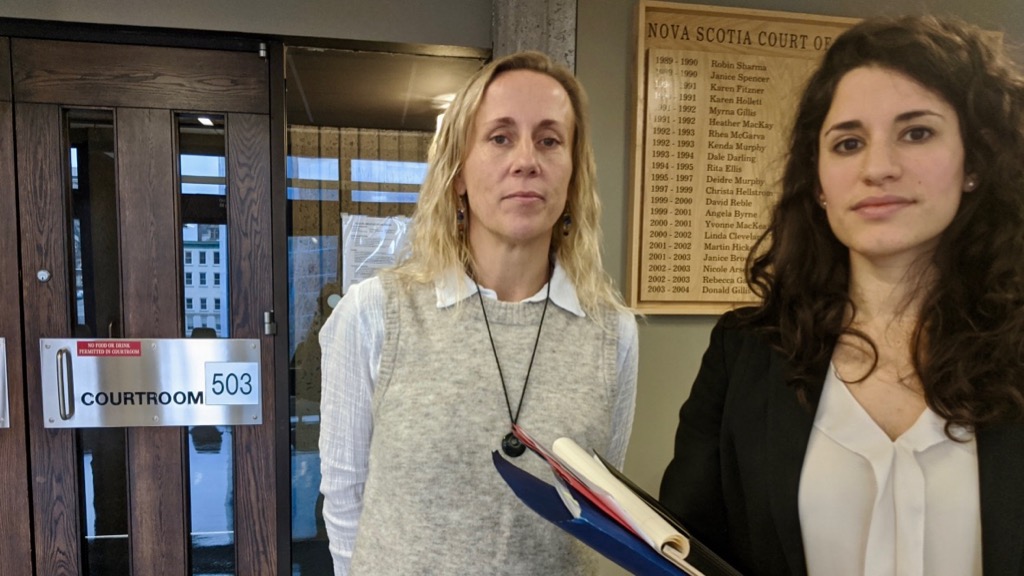As court dates set, Carrie Low ‘still losing more faith’ in Halifax police
Court dates set in complaint against police about sexual assault report

caption
Carrie Low (left) and Jessica Rose outside a courtroom at Nova Scotia Supreme Court in 2019.Editor's Note
This story was updated on Nov. 20 to include a comment from Halifax Regional Police
A woman who claims Halifax Regional Police didn’t investigate her sexual assault report adequately is frustrated that she’s been left out of the police’s review process.
“I definitely have lost a lot of faith in the whole process,” Carrie Low said, “and [I’m] still losing more faith in the process going forward.”
Low was present in Nova Scotia Supreme Court on Monday to find out when the dates of the two hearings would be set.
The first hearing will determine if Low’s complaint will be sent back to police and processed, the second one will determine the constitutionality of Regulation 29 of the Nova Scotia Police Act. Related stories
Low claims the police mishandled evidence after she reported a sexual assault in May 2018. Her complaint wasn’t processed because it was submitted after the six-month window.
Low’s lawyer, Jessica Rose, is with the Elizabeth Fry Society, which provides legal aid and other resources for women. She said the police service launched an internal review, but she never got a time frame for it.
Rose said Low was not permitted to participate in the review at all.
“The main problem that we see with this whole process is how little Carrie’s voice has been included,” Rose said. “The fact that an internal review is taking place but without there being an opportunity for Carrie to voice her perspective about where everything went wrong is troubling.”
Low wanted a meeting with Halifax’s police chief.
“It’s definitely been frustrating,” Low said. “I also wanted the opportunity to sit down with Dan Kinsella and talk with him one on one, and he hasn’t been open to that discussion either.”
The internal review has been completed, Const. John MacLeod, a spokesperson for Halifax police, said in an email to The Signal on Wednesday. He said Kinsella is open to talking with Low after the investigation into her assault report is closed.
Charter rights
Low’s specific case will be heard on March 3, 2020, to determine if the police service’s complaints commissioner acted unfairly to Low.
“If we are successful on March 3, her complaint will be remitted back to the complaints commissioner to be processed,” Rose said.
The court will allow an affidavit from Low to be submitted as new evidence, which the lawyer for the Nova Scotia Police Complaints Commissioner and the Attorney General of Nova Scotia consented to.
Sheldon Choo, counsel for the respondents, declined to comment to reporters.
The second hearing on June 29-30 will question the constitutionality of the six-month limitation period, which is Regulation 29 of the Police Act of Nova Scotia.
Low’s side is arguing that the time limit for complaints violates sections 7 and 15 of the Charter of Canadian Rights and Freedoms.
Section 7 guarantees the right to life, liberty, and security of the person, and Section 15 grants equal treatment before and under the law, and equal protection and benefit of the law without discrimination.
For comparison, the time frame to file a complaint against the RCMP is one year.
Rose is satisfied with the timeline set Monday. She said if Low wins in June, the six-month limitation period will be struck down entirely and need to be rewritten.
About the author
Lucia Helder
Lucia Helder has interned at Maine Public and is the copy editor of the Dal Gazette.
